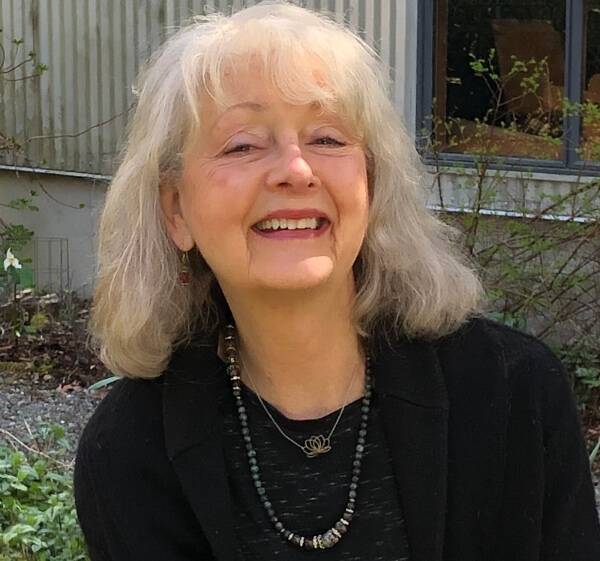Editor’s note: Green Briefs is a regular series of commentaries by eco-leaders on Vashon, presented in The Beachcomber in partnership with The Whole Vashon Project.
While many folks began 2024 with a sense of dread about what to expect from our climate, 2023 left us with many signs of hope. Recently, an online magazine titled “Reasons to be Cheerful” (found online at reasonstobecheerful.world) compiled a list of 177 hopeful facts from their year of stories. Here are ten of them to lift our spirits.
The Ozone Layer Will Soon Be Entirely Healed
In an unprecedented global effort, 197 countries and the EU agreed to ban chemicals in products like air conditioners, aerosol hairspray, and deodorants that were depleting the ozone layer. And it worked! The United Nations announced that the planet’s critical sun shield will completely recover within 40 years. The agreement is considered a paragon of international cooperation, and we hope it’s a pattern for how we can continue working together to save our planet.
President Biden’s Inflation Reduction Act set aside $1.5 billion for urban tree planting in 2023.
As climate change brings heat waves and heavy storms, urban forests and tree-lined streets can provide cool shade and flood protection — if they’re planted strategically. Seattle is cited as a leader in the host of communities that are planning ways to spend the money on ecologically diverse urban forests, designed to stand up to weather patterns forever altered by the climate crisis.
Four-day work weeks helped reduce commuting hours by 27 percent in the US.
This has already led to a decrease in carbon emissions from people driving to work. It turns out that workers and the planet share a love for the four-day workweek. With their newfound free time, many participating workers hiked, volunteered for environmental causes and were more selective about consumption and recycling.
Thousands of abandoned bikes are repaired and shipped to people around the world.
In a largely unseen system, a group in Chicago – Working Bikes — processes about 11,000 bikes a year and finds new homes for all of them, giving bikes away for a token sum or free to people who need them most. This not only provides transportation for people who couldn’t otherwise afford a bike, it also keeps bicycle trash out of landfills.
For what they call their “Cycle of Power” program, Working Bikes accepts referrals for giveaways from social service agencies, refugee resettlement groups, transitional housing facilities, or any nonprofit or community-based organization supporting a population that might have trouble accessing transportation for work or school, including ex-prisoners starting over.
The biggest dam removal project in US history will open up 400 miles of fish habitat.
Now underway along the Klamath River, which flows from Oregon to Northern California, the first of four hydroelectric dams, Copco 2, has been removed. The restoration process will open 400 miles of fish habitat that have been closed off for nearly a century.
Children at the elementary school in Braunschweig, Germany, are planting a “garden of emotions.”
With “gratitude necklaces” and “gardens of emotions,” mental well-being classes help young people with their anxiety and confidence. The kids in 16 elementary schools in the small town of Braunschweig are collecting big and little moments of happiness, both literally and figuratively. Science shows that savoring moments of happiness actually makes us happier.
US solar and wind capacity continues to grow.
The capacity is growing at a pace that keeps the country on track to reach net-zero carbon emissions by 2050. And on Vashon Island, residential solar installations have doubled in the last 5 years, now numbering over 400!
Farmers used California’s “atmospheric river” to recharge aquifers.
As unprecedented rains pummeled California over the winter, some Central Valley farmers seized a chance to secure water for drier times ahead. Following a method called “managed groundwater recharge,” farmers intentionally flooded their fields, turning normally arable land into ponds that eventually disappeared, sinking into the earth, and restoring aquifers that had steadily dried up in recent decades.
Washington is the first to support teaching about the climate crisis.
Food justice classes and mock G7 summits in K-12 public schools are on the curriculum in our State, the first to fund “climate change education” in public schools. Lessons are based on a year of educators’ professional development with Washington State’s ClimeTime program.
The program helps high school teachers introduce climate change and environmental justice into their classrooms by focusing on how the issues are playing out in their own backyards. At least 11 other states have similar bills pending.
In Oregon, 33,000 acres of grasslands were converted into the Zumwalt Prairie Preserve. It’s the largest private nature sanctuary in the state.
These are just a few of the reasons to be cheerful about our planet’s future and, hopefully, motivate us to stay the course. Happy 2024 from The Whole Vashon Project.
Susan McCabe lives and writes on Vashon. She publishes her essays on Substack under the title, “Hot Flashes Cold Showers.” Subscriptions are free at susanhmccabe.substack.com.



